Mr Firmin is St Jude’s Head of Religion and Vocational Skills at Smith secondary campus.
He oversees our physical education, music, art and religious education programs, but understands that nurturing future role models entails more than marking essays. A mission-driven leader and born teacher, Firmin believes wholeheartedly that the work of St Jude’s will have a profound impact on Tanzania.
“At St Jude’s, we want to create an environment which promotes the development of a balanced person: not just academically gifted, but cultural and values-based leaders. Someone who can think, reason, believe.”
For all his talents as an educator, Firmin’s career did not begin in the classroom.
“I was working in the church as a chaplain, which is a form of teaching in itself. Then I decided to do further study and get my teaching qualification,” he explained.
“I wanted to work at St Jude’s because I was inspired by the spirit of the founder, Gemma Sisia. This charitable school gives opportunities to very disadvantaged people. The students show potential and have integrity.”
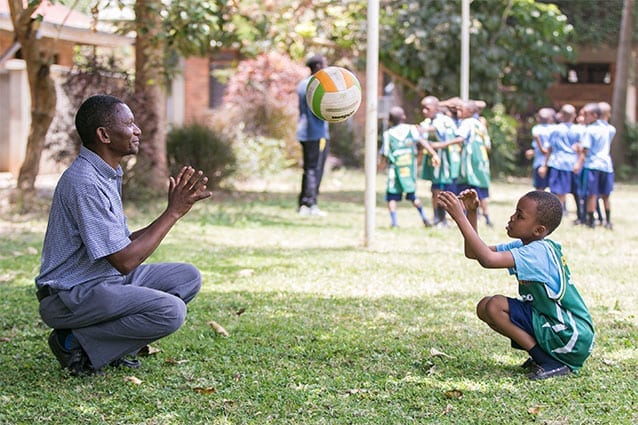
Firmin knows that as a teacher, he can learn from and be enriched by his students, which is why he says his job is so rewarding.
“The future is so bright! There is hope for this generation. Our roots, where we come from, is so important. I am impressed with St Jude’s students because they are future leaders, but they are already starting to make a difference.”
“They will go out to their families and communities and share the spirit of our school.”
Firmin says the role teachers play in supporting students is vital to ensure they become moral and intellectual leaders in the future.
“A teacher must be a role model and inspire their students. They will look to our actions as well as our words. Moral and intellectual leadership is a core part of the St Jude’s vision.”
“We are not just robots. We have the ability to impact upon others and make choices about the kind of impact we leave.”
“Being an intellectual leader alone is not enough. One must also be moral, because this shows a sense of justice, spirit, and the respect you give to others."
"We will see one day the people running St Jude’s, and being in positions of responsibility in their community, are our former students. Here, we give them a good foundation,” Firmin added.
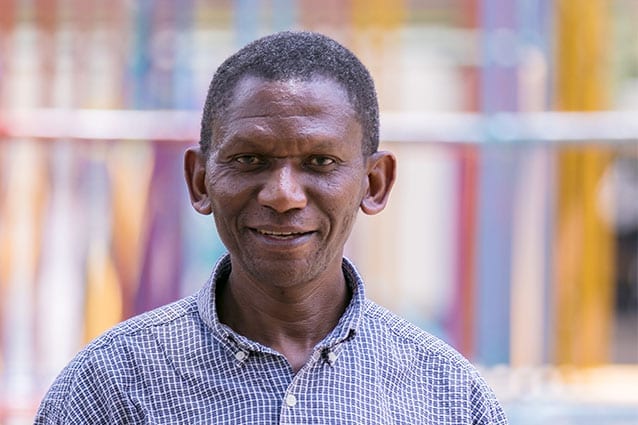
Thanks to teachers like Firmin, St Jude’s students are already branching out and proving themselves as change-makers and critical thinkers.
Last month, three secondary students earned international accolades for scientific innovation.
Edgar attended the Anzisha Prize workshop at African Leadership Academy, while Eric and Prosper represented Tanzania at Exposcience. Both events were held in South Africa.
“In our students’ efforts and achievements, we can see the fruits of our school are already growing.”
You can be a part of St Jude’s vision. Give opportunity and purpose to some of Tanzania’s poorest and brightest students by making a donation today.
If you spotted Jonas, an Academic Leader, strolling around Sisia primary campus, you could be forgiven for thinking he had glided straight off a fashion runway.
The reality is almost as exciting! When he’s not moulding the minds of our talented students, the teacher-turned-visionary-designer is likely to be found at Arusha’s fabric markets, fashioning stylish outfits for himself and his friends.
“I have a vision and idea about the clothes I’d like to wear, so I draw the design and purchase the materials. Then, I take them to a tailor and share my idea with him and the tailor brings it to life.”
This process, Jonas says, is similar to Gemma’s early dream for The School of St Jude.
“The inspiring thing about Gemma is how she had a vision. She has kept the vision close to her heart, shared it with other people, so it could grow. Gemma is an inspiration to me.”
“There is a big tree in Tanzania called the baobab tree. It starts small, but with some rain, it grows to be very big. The dream for our school is the same.”
“To see how St Jude’s has grown from three children to 1,800 is a miracle.”
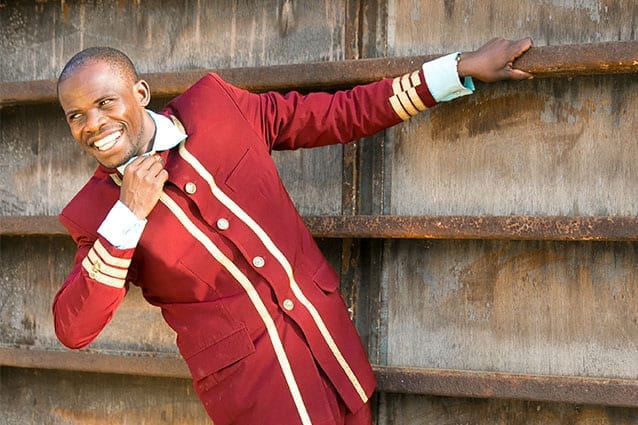
Jonas knows a thing or two about crafting a dream and overcoming challenges. He started working at St Jude’s in 2012 as a physical education teacher.
Before this, he’d been a Headmaster at two private primary schools.
It was a desire to fight poverty through education, spurred by his own humble beginnings, and devout faith, that inspired Jonas to join St Jude’s.
“I attended government primary and secondary schools. I was selected to attend a government teaching college, and then I was sponsored by generous people so I could go to an English Medium teaching college.”
“Teaching is a calling in my family. Both my parents are teachers and I saw how they helped people to become good leaders and professionals in society.”
“Many leaders in Africa are corrupt and do not have integrity. Moral leaders are not corrupt; they use their position to benefit others.”
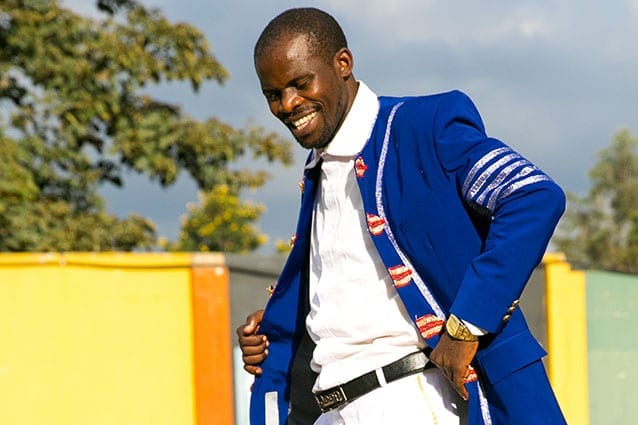
“My dream is to identify students’ potential. Some want to be teachers, doctors, nurses. When I know their goal, I can give them the right knowledge to help them perform well. Students need to be passionate and have a good character, because that will ground them as good leaders.”
Generous Jonas doesn’t stop caring when the school gates close at the end of each day. He is so committed to the work of St Jude’s, that he sacrifices a portion of his monthly salary as a donation to our cause.
A study conducted by the United States National Institutes of Health concluded that altruism activates the brain’s social connection, trust and pleasure regions, creating a ‘warm glow’ effect.
It’s no wonder Jonas’s radiant smile lights up the whole schoolyard!
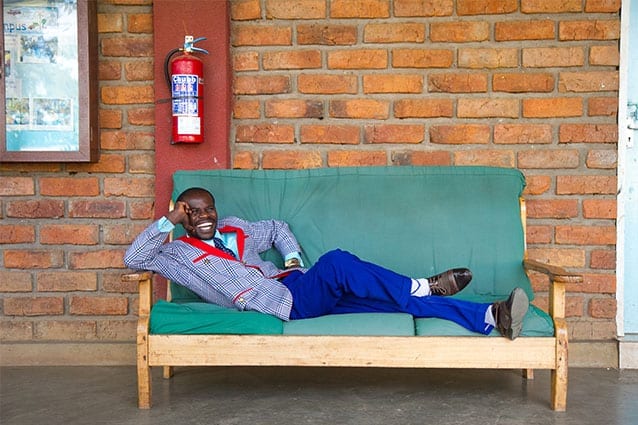
“At St Jude’s, we are a centre of excellence. We help children who come from very poor families. By doing this, we will help Tanzania, and take the students from a low place, to a high place. These students will do great things.”
Like the growth of a baobab tree, it takes a little rain and a lot of perseverance to fight poverty.
Passion is in fashion at St Jude’s, and in the creative, capable hands of teachers like Jonas, the future is bright for our students.
Come and visit St Jude's so you can meet our wonderful staff!
When you support St Jude’s, you aren’t just providing free education to the poorest and brightest students in Arusha. You’re supporting almost 300 talented, dedicated staff members committed to fighting poverty in their community.
Meet Anna – at just 26 years old, the impassioned teacher, is earnest, forthright and a quiet inspiration to our Primary students.
Ms Anna was chosen for this month’s staff profile by our Appeal Ambassador, and Grade 4 student, Joseph.
“She knows where she came from; she told us that she started learning under a tree, so she reminds us we are having a free, private education and should always study hard, for everyone,” Joseph said.
Now it’s time for you to hear from Anna herself…
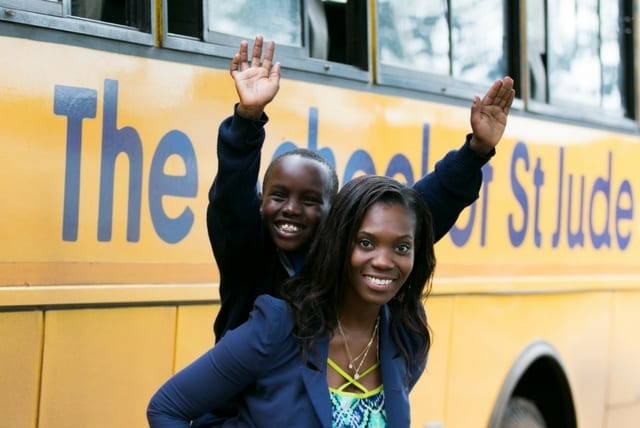
What is it like to be a teacher in Tanzania?
Sometimes it is hard for teachers to feel supported in Tanzania. I have always done my best and I love to teach. I think attitudes towards teachers are slowly changing and it is becoming easier.
Why did you apply to work at St Jude’s?
It is a very happy place to be. I love all my students so much - I always wanted to work at this school because it helps our community in such a big way, with so many students and families.
You went to a government school and now you teach at a private school. What are the key differences you’ve noticed between the two?
Government schools didn’t have enough resources or materials for all of us to learn well. Here at The School of St Jude, we have everything we need for the students to receive a good education. As teachers, we need to be able to have examples of work to show the students; we need books and supplies for them to learn. It is very hard for teachers and students in some government schools without these things.
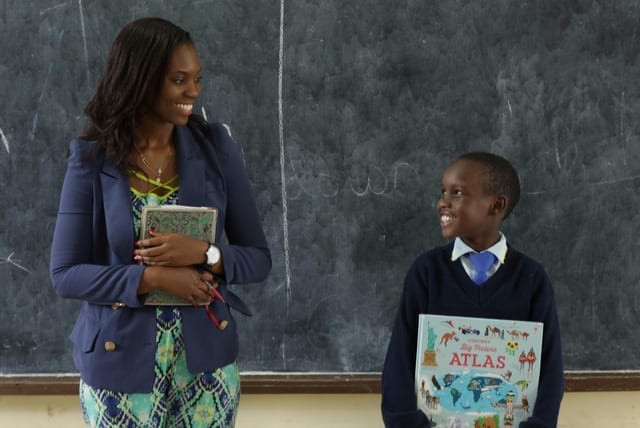
Did you learn to speak English during your time at government school
It is really challenging for children in government schools to learn English because, in primary school, lessons are taught in Kiswahili. I taught myself to speak English and dreamed of becoming a teacher. I learned by reading books under a tree in the school yard. My friends and I used to have discussions about our studies at break times. Some of them spoke a bit of English, so I was able to learn from them. My mother is a teacher and she helped me too.
Did you have any teachers who inspired you?
I had two female teachers who really inspired me and encouraged me. I knew I wanted to be just like them when I grew up. Now, I try to use the qualities I learnt from them to inspire my students. A student once gave me a gift and thanked me for being one of her favourite teachers. I felt so proud – like I had made a difference to her. It helped me realise I was doing a good job. I always tell my students stories about when I was at school. I want to be a role model, especially for the girls.
What are your hopes for your students?
I would encourage my students to always follow their passions and believe in themselves, even if they fail at something. I always tell them their strengths and encourage them so they can have more self-confidence, especially when they face challenges, which we all do in life.
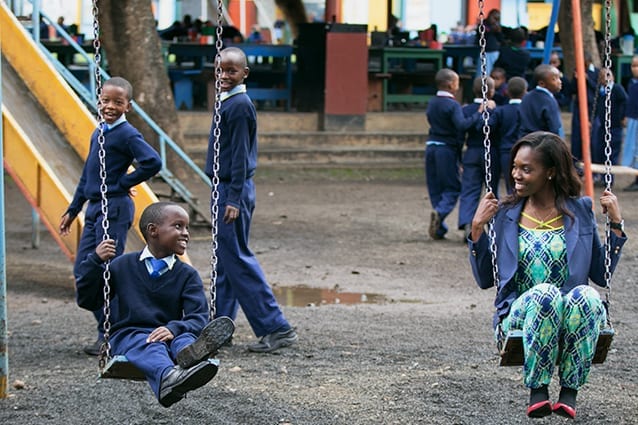
What is Joseph like to teach?
Joseph is so enthusiastic and always raises his hand to answer questions. His class is one of my favourites to teach because they are so charming and love to have discussions. I want Joseph to always grow and develop, to have confidence in himself, to be a leader, to be doing whatever makes him happy in the future. I wish for him to stay as enthusiastic, curious and hard working as he is forever, he will be a great man for his community.
Help Anna to educate her charming and curious classes - donate to our 2017 Appeal
Innovative Form 3 student Erick can create a vending machine from scratch and turn a mobile into a home safety system – but this budding gadget whiz doesn’t dream about being the next Steve Jobs or Bill Gates.
“I want to be a volunteer at The School of St Jude,” Erick says.
“That’s my number one priority. I’ve seen what the opportunity this school has given me and my family.
“I have 10 siblings and none of them are in school – I know the importance of my education.”
At last year’s Science Fair he was part of a group that invented an automatic vending machine but missed out on first place to Form 4 student Edgar, who created a created a system that converted plastic bags to roof tiles.
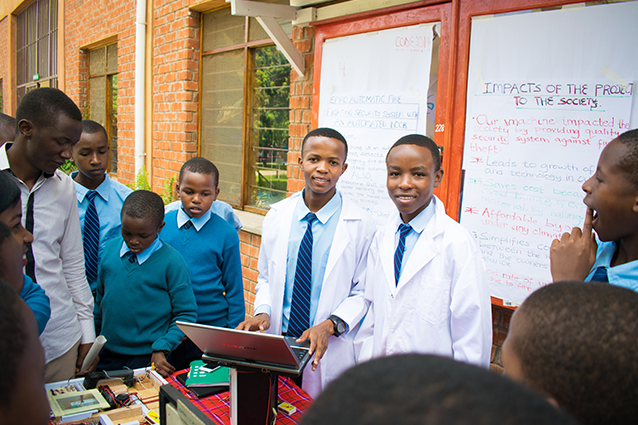
Erick’s goal in 2017 was to win the overall prize at Science Fair, and with his partner Prosper succeeded by creating a home safety system that was controlled using repurposed mobile phones.
Their system used the computer from a basic mobile phone that was connected to a smoke detection device to automatically open doors in case of a fire.
The system could be used to increase home safety but Erick said the main purpose of the project was to show people that popular devices such as mobile phones can be used in a variety of ways.
“Phones are already powerful devices and they are quite common in Tanzania, but they can be used for different purposes than just calls and texts,” Erick said.
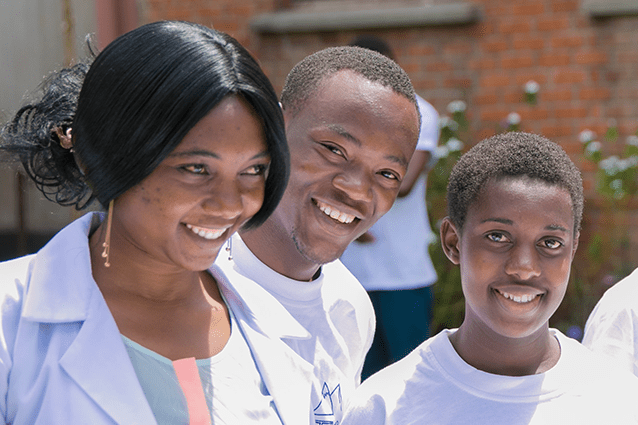
Science Fair organiser Shaban Ramadhan said he was impressed by the innovation on display at this year’s event.
“It was incredibly tough to pick winners because there were a lot of good projects,” he said.
In the lead-up to each year’s Science Fair, students are asked to create projects that will address the needs of their communities. This year – the seventh running of the event – technology and the environment were major themes.
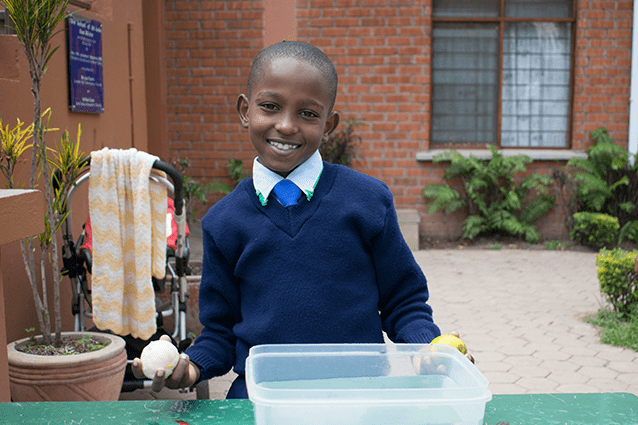
“St Jude’s mission is to produce future leaders of Tanzania and it is important that our students have the skills to address the needs of their community,” Shaban said.
“That is why our annual Science Fair is important. It encourages students to think creatively and come up with solutions.”
Support St Jude’s commitment to academic excellent by donating here.
1st: Epro fire-fighting automatic security system (Erick and Prosper)
2nd: Vibration and voltage locking system (Christopher and Rickson)
3rd: Water level indicator (John, Samwel and David)
Science (lower primary): Does an orange float or sink (Joshua, Nesta and Joanitha)
Science (upper primary): Tonaldo Robot (Hemed, David G and David S)
Chemistry: Artificial water gills (Eliamani and Elias)
Biology: Natural insecticides (Amos, Christian and Praise)
Physics: Automatic rain sensor and security system (Rafael and Ramadhani)
Mathematics: Linear programming (Denis and Godwin)
Geography: Recycling plastic bottles (Sweet, Hilda, Rahma and Jackline)
ICT: Library management system (Stephen and Godbless)
Chairman Award: Statistical attendance (Johnson, Peter, Issack and Ezekiel)
The St Jude’s Rotary office was filled with the sounds of craftwork as Interactors got busy with their latest community project.
“We are making blackboard dusters to give to schools. I think I have made over five so far!” explains enthusiastic secondary student Eva.
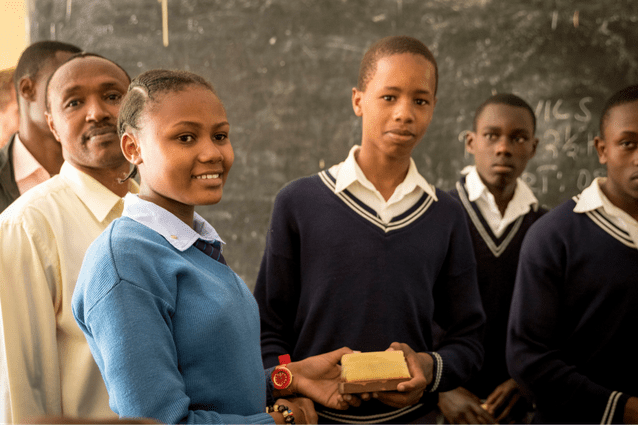
As well as being a practical show of goodwill for a local school, who can then prioritise their limited budget on providing more books for their students, the blackboard dusters have another benefit. They are made out of recycled foam from old mattresses and help reduce the amount of waste going to landfill. The soft, spongey material is perfect for a new life as a duster!
Once a mini mountain of dusters had been made, our students hopped on a St Jude’s bus to give them to two neighboring schools in Arusha - Oldadai and Njiro Secondary Schools. The smile from Oldadai Secondary School headmaster Urio Godson shows they were well received!
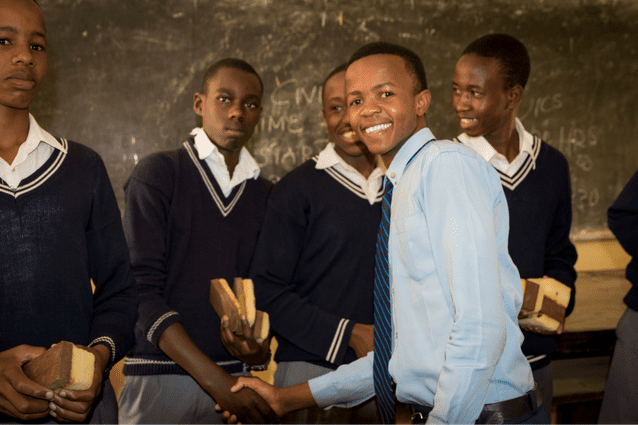
Both schools are supported by our Community Service Year Interns (CSY) Interns. Many local government schools do not have enough teachers, and a student to teacher ratio that makes effective teaching difficult. It is not uncommon to see over 100 children in one classroom.
Daudi is one of last year’s St Jude graduates doing his Community Service Year at Njiro Secondary School, and Kelvin is at Oldadai Secondary School. Now that The School of St Jude has both intern teachers and a supply of blackboard dusters to help support our local community, we are sure our Rotarian students can build on this with their community project plans in the future.
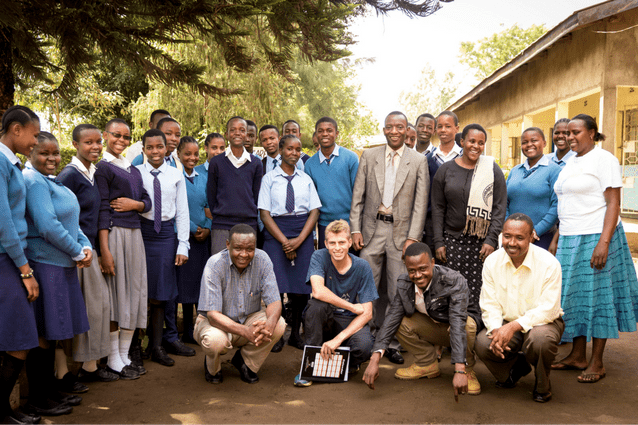
Interact gives our students the confidence to present their ideas and the opportunity to get a project off the ground and out into the world. The blackboard duster project was the brainchild of Edgar from Form 3. Rotary Coordinator Seb was full of praise for the community-minded student.
“He is brilliant. Edgar constantly tries to develop more knowledge about Rotary and goes to the library to research in his free time,” he said. “The dusters were his idea. He came to me with the idea and I encouraged him to take it to the club President and board. He even taught the other Interactors how to make them.”
St Jude’s students love to help others, so show your support for their community enthusiasm by helping fund their projects. They learn skills for life and grow confidence!
More than 500 promising primary school graduates streamed through the St Jude’s gates late this month.
They arrived early, prepared for testing and hopeful of securing a St Jude’s scholarship that will ensure they receive a free, high-quality education through high school.
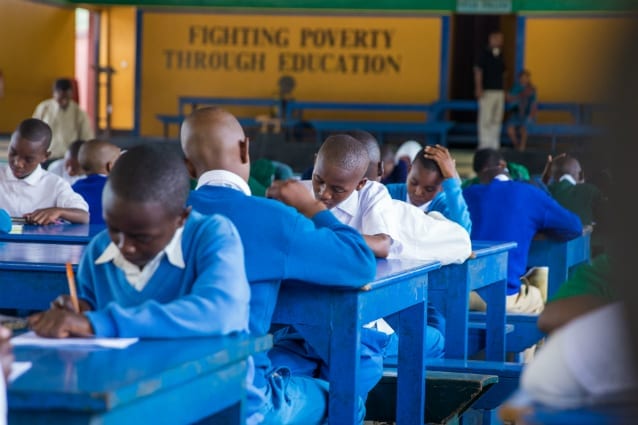
An opportunity like this doesn’t come along often in Tanzania, one of the world’s poorest countries. Just 7.5% of the total population over 25 years old has a secondary education, so those who are eventually chosen from this eager group already have a chance at a brighter future.
Each of these students have already showed their dedication to education – due to their impressive exam results, they were invited from under-resourced government schools to vie for fewer than 100 Form 1 scholarships available.
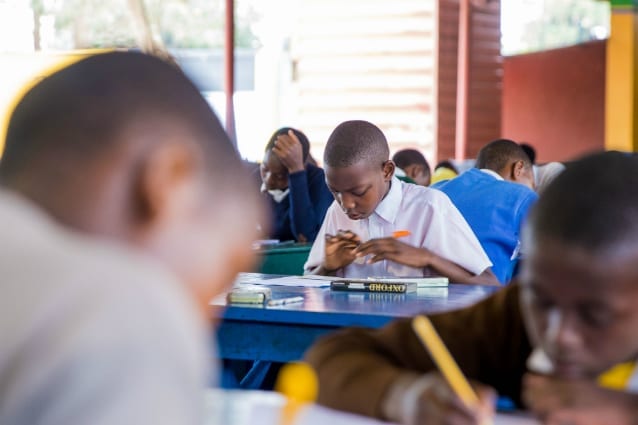
“Student selection is very important to St Jude’s and it’s imperative we get it right,” testing co-ordinator and Community Relations Manager Charlotte Peyrat-Vaganay said.
“This process gives the most diligent students the best chance of receiving a well-educated future.”
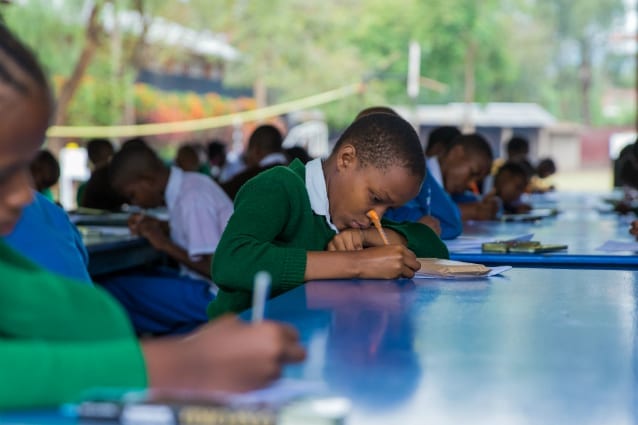
Each year St Jude’s awards scholarships for free high-quality education to the poorest and brightest students in Arusha.
New students are enrolled in a number of different age groups, from Grade 1, right up to Form 5, the second last year of high school.
In August, more than 700 students from across Arusha participated in a similar process for our 2017 Grade 1 scholarships.
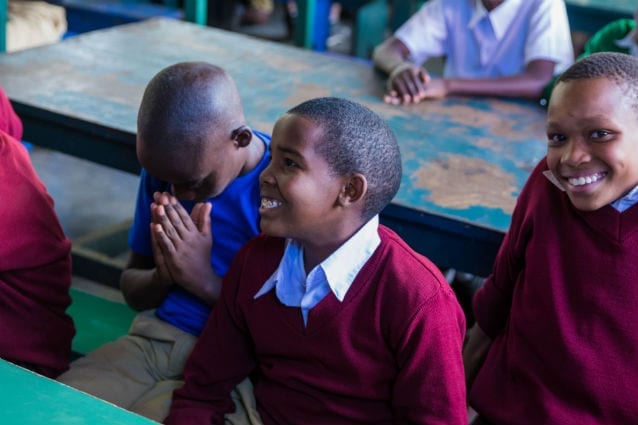
Students who successfully pass the academic testing must then pass a poverty assessment to ensure we reach the families who need your support the most.
Donate today and help our school continue to offer a high-quality education to promising but underprivileged students in Tanzania.